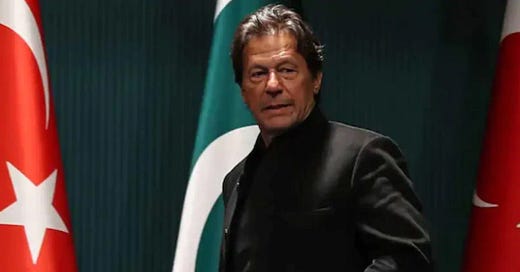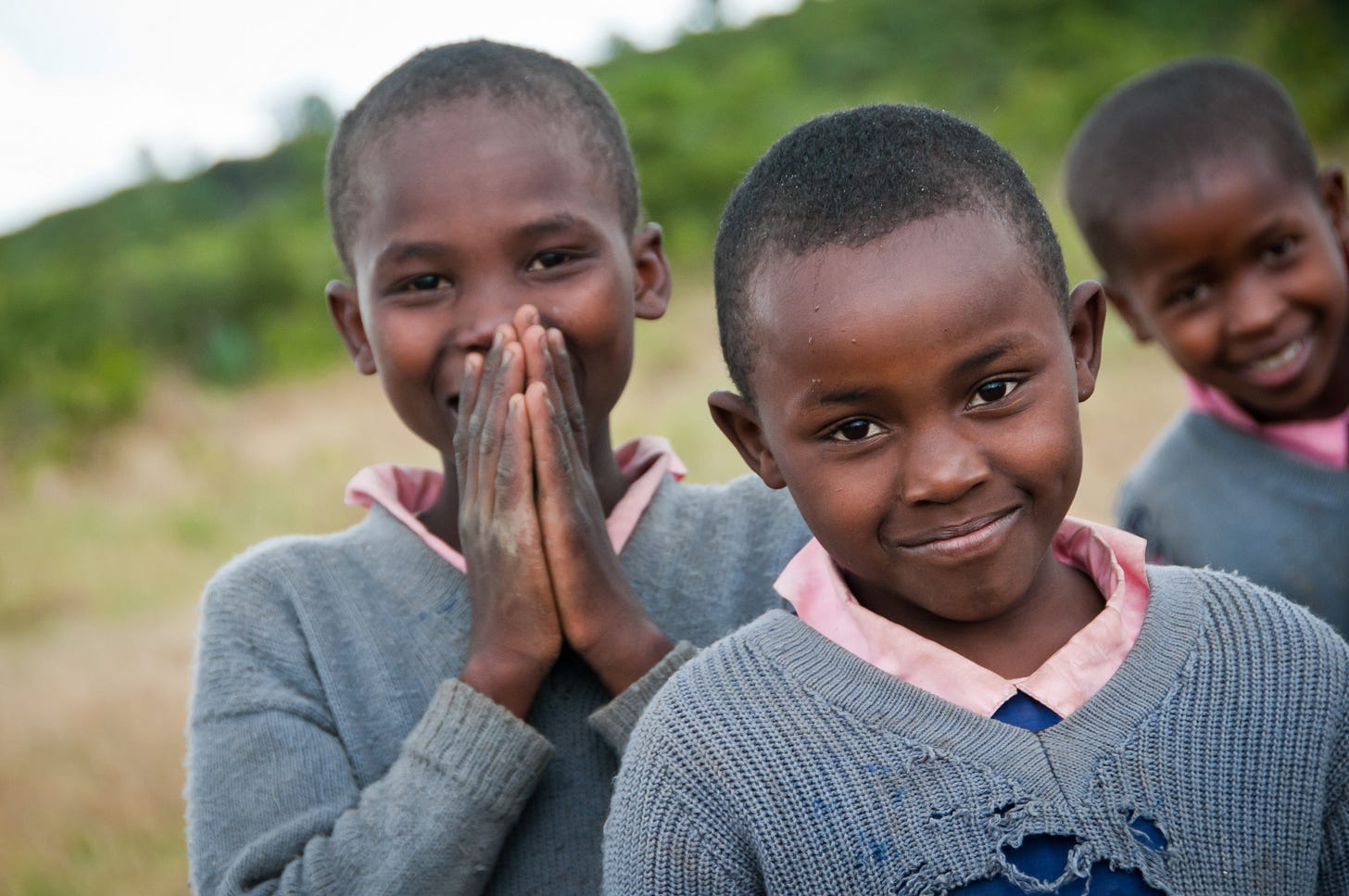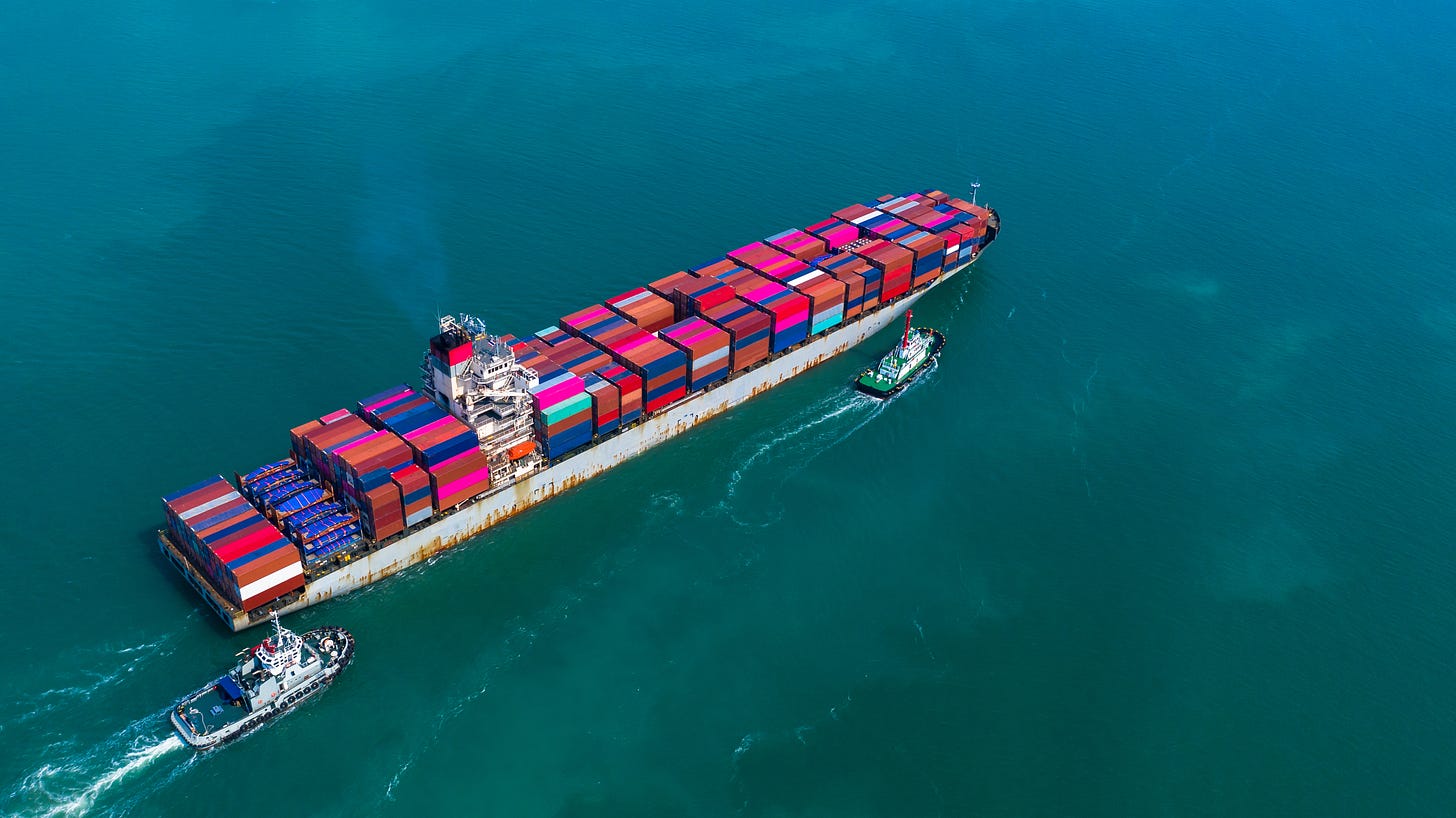Emerging Markets Daily - March 28
Pakistan PM Khan On the Brink, ECB Supports Polish Currency, Africa Faces Food Insecurity, Shanghai Lockdown Roils Supply Chains, India-UAE Trade Aims for $250B
The Top 5 Stories Shaping Emerging Markets from Global Media - March 28
Pakistan’s Imran Khan On Brink As No-Confidence Proceedings Begin
Nikkei Asia
“Pakistan Prime Minister Imran Khan faces an imminent no-confidence vote that threatens to bring down his government, in what would be a first for the South Asian country.”
“The motion was tabled on Monday in a special National Assembly session, setting in motion proceedings toward the vote. The session has now been adjourned until Thursday when the debate over the motion is expected to begin. When the vote will take place is still unknown, but the prime minister is widely expected to lose it, after members of his party defected and allies turned against him amid a storm of criticism over his economic stewardship.”
“Khan, who was elected in 2018, has been trying to save his job, including by turning to the Supreme Court. With large competing rallies on Sunday, there are also concerns that the political crisis could spiral into violence, potentially causing turbulence for China's Belt and Road Initiative, of which Pakistan is a key country.”
“The government has been under fire over rising inflation and accusations it is ‘selling out Pakistan's sovereignty’ to the International Monetary Fund in exchange for loans. In February, the nation borrowed $1.05 billion from the IMF after a sixth progress review.”
“…Two weeks ago, over a dozen members of Khan's party, Pakistan Tehreek-e-Insaf (Pakistan Justice Movement), said they were crossing the aisle and would vote for the no-confidence motion. Likewise, three smaller parties allied with Khan -- with 17 seats between them -- have hinted at abandoning the government.” Adnan Aamir reports.
ECB Supports Poland Currency in Wake of Russia Attack on Ukraine
Financial Times
“The European Central Bank has established or extended financing agreements with Poland and four other countries to support their efforts to defend their currencies against the fallout from Russia’s invasion of Ukraine.”
“The ECB said it had set up a €10bn precautionary swap line with the Polish central bank to provide it with euros in return for Polish zloty until January 2023 — the first time it has done this since the global financial crisis in 2008.”
“It also extended repurchase agreements to provide euro financing to the central banks of Hungary, Albania, North Macedonia and San Marino, which had been due to expire at the end of March.”
“Analysts said the move, which follows a sharp sell-off of central European currencies including the zloty in the wake of Russia’s invasion of Ukraine, would strengthen the Polish central bank’s ability to shore up the zloty if needed.” The FT reports.
Africa Braces for Food Insecurity As Russia-Ukraine War Continues
“Experts are predicting an inflation and food price spike will hit Africa later this year, as agricultural imports and supply chains in the region are blocked, and fertiliser and commodity prices soar.”
“The black soils of Ukraine and Russia, rich in minerals and organic carbon, are one of the world’s most important breadbaskets, with roughly 25% of the world’s wheat exported from Russia and Ukraine, according to the Observatory of Economic Complexity (OEC).”
“Wheat imports account for roughly half of Africa’s $4.5bn trade with Ukraine, and for about 90% of the continent’s $4bn trade with Russia, according to figures from the African Development Bank (AfDB). Over 65% of Senegal’s wheat imports come from Russia and Ukraine, and a number of bakers and consumers in Dakar told African Business they are bracing for supply shortages and increased costs in the months ahead. At the same time, East Africa gets 90% of its imported wheat from Russia and Ukraine, according to the World Food Programme.”
“In Africa, wheat provides 14% of the calories consumed, and with rapid urbanisation and increased use of bread as part of a staple diet for many Africans, that number is projected to double by 2050.”
“Ukraine’s winter crops are reportedly still in good condition, and will be harvested where possible in early April, following a record 86m tonnes of grain harvested in autumn 2021.” Will McBain reports.
Shanghai Covid Lockdown Poses Fresh Tests to Supply Chains
Wall Street Journal
“A lockdown in Shanghai marks another potential setback for China’s export machine, reigniting concerns over the risk of renewed disruption to global supply chains pummeled by the pandemic and war in Ukraine.”
“Authorities imposed a two-stage lockdown on China’s most populous city on Monday, the latest reverberation from the country’s zero-tolerance Covid-19 strategy that is facing its toughest test yet from the highly contagious Omicron variant.”
“Tesla Inc. is suspending production at its car plant in Shanghai for four days, people familiar with the matter said, but chip maker Semiconductor Manufacturing International Corp., which has two fabrication plants in the city, is producing and operating as usual, a company representative said Monday. Shanghai’s port remains open, but exporters are bracing for delays as the lockdowns hit warehouses, transport and staffing, a pattern experienced during similar targeted lockdowns such as the one in the southern city of Shenzhen.”
“Though China is getting better at keeping ports open and factories humming when restrictions tighten in response to rising caseloads, economists and company executives say the repeated flare-ups and logistical headaches of navigating shifting public-health measures are nonetheless weighing on industry, keeping up inflationary pressure on a world economy already struggling with surging prices.” Yoko Kubata reports.
India-UAE Trade Could Hit $250 Billion By 2030
The Times of India
“The free trade agreement between India and the UAE has opened huge opportunities and businesses of both countries should look at taking the bilateral trade to $250 billion by 2030, commerce and industry minister Piyush Goyal said on Monday.”
“The Comprehensive Economic Partnership Agreement (CEPA) was signed by India and the United Arab Emirates (UAE) in February and is expected to come into force from May 1, he said.”
“‘We should reset our goals and look for much much broader canvas in which this partnership should work and possibly look at going up to USD 250 billion between UAE and India by 2030,’ he said here.”
“Under the pact, domestic exporters of as many as 6,090 goods from sectors like textiles, agriculture, dry fruits, gem and jewellery would get duty-free access to the UAE market.” The Times of India reports.
“It isn’t where you come from; it’s where you’re going that counts.” – Ella Fitzgerald





